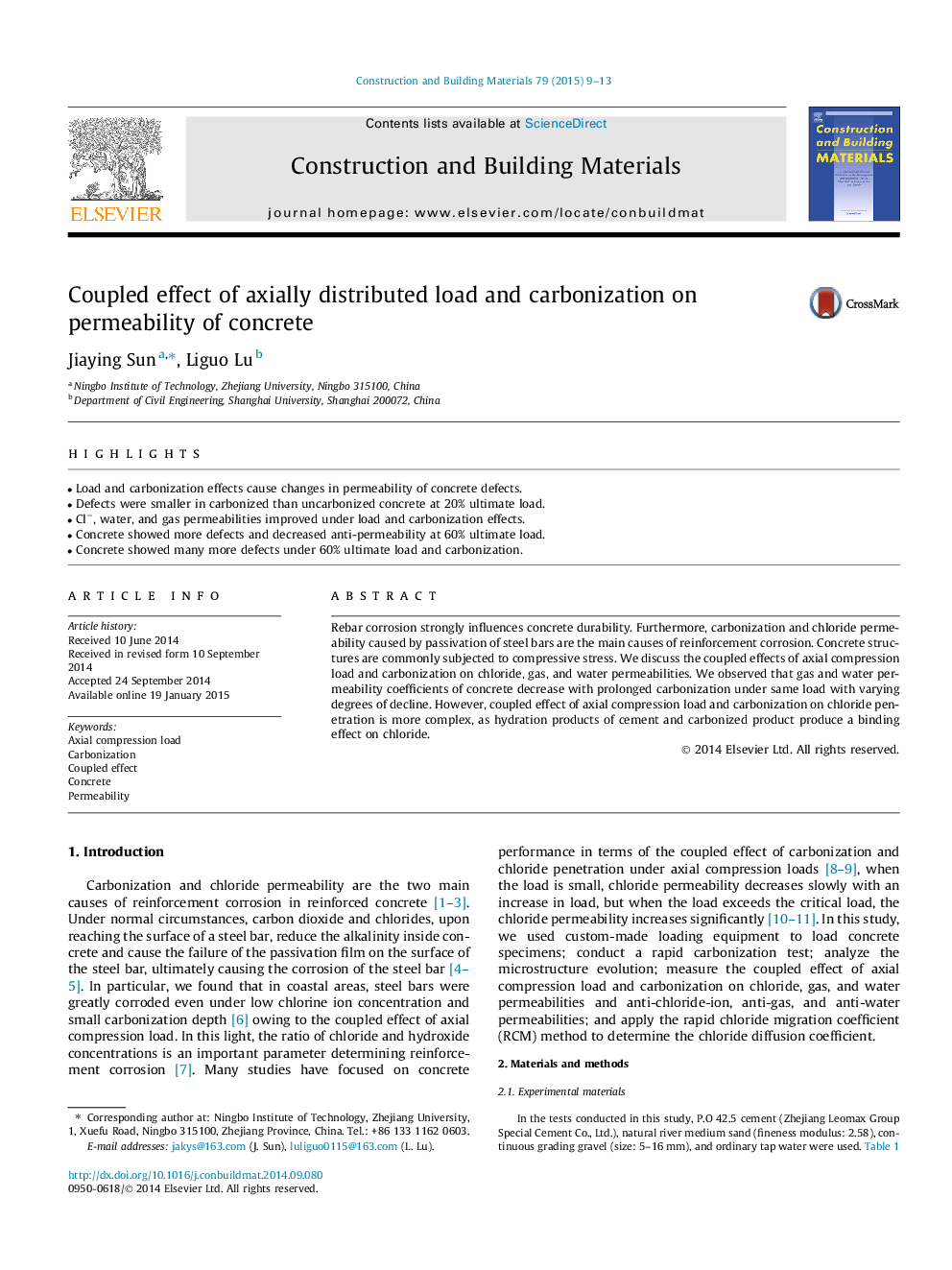| Article ID | Journal | Published Year | Pages | File Type |
|---|---|---|---|---|
| 257170 | Construction and Building Materials | 2015 | 5 Pages |
•Load and carbonization effects cause changes in permeability of concrete defects.•Defects were smaller in carbonized than uncarbonized concrete at 20% ultimate load.•Cl−, water, and gas permeabilities improved under load and carbonization effects.•Concrete showed more defects and decreased anti-permeability at 60% ultimate load.•Concrete showed many more defects under 60% ultimate load and carbonization.
Rebar corrosion strongly influences concrete durability. Furthermore, carbonization and chloride permeability caused by passivation of steel bars are the main causes of reinforcement corrosion. Concrete structures are commonly subjected to compressive stress. We discuss the coupled effects of axial compression load and carbonization on chloride, gas, and water permeabilities. We observed that gas and water permeability coefficients of concrete decrease with prolonged carbonization under same load with varying degrees of decline. However, coupled effect of axial compression load and carbonization on chloride penetration is more complex, as hydration products of cement and carbonized product produce a binding effect on chloride.
